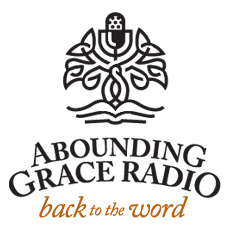The gospel method of sanctification, as well as of justification, lies so far out of the ken of natural reason, that if all the rationalists in the world, philosophers and divines, had consulted together…” Thomas Boston, Preface to The Marrow of Modern . . . Continue reading →
Sanctification
Boston: Sanctification Through Faith Alone Is A Gospel Mystery
Did Ursinus Teach Final Salvation Through Works?
Zacharias Ursinus (1534–83) was the principal author of the Heidelberg Catechism (1563). He was responsible for perhaps as much as 70% of the catechism, though the two source documents that he created, from which much of the catechism was formed, drew from many sources (including Luther), so the source criticism of the catechism is challenging. For more on the background of the catechism see Lyle Bierma et al ed., An Introduction to the Heidelberg Catechism: Sources, History, and Theology (2005) and J. I. Good, Good, The Heidelberg Catechism in Its Newest Light ( Philadelphia, PA: Publication and Sunday School Board of the Reformed Church in the United States, 1914). Continue reading →
The Reasons Christians Do Good Works
The Heidelberg Catechism is in three parts: Law, Gospel, and Sanctification or Guilt, Grace, and Gratitude. This is not an artificial interpretation of the Catechism nor is it an artificial arrangement of the Christian faith. Question 2 outlines the Catechism for us: Continue reading →
What The Reformed Can Learn From A 1532 Synod: God Should Be Preached Only As He Is Known In Christ
How disgraceful it is for a servant of Christ not to know the command of His Lord, and to pursue some other, useless preoccupation, and fail to take an interest in the things which concern His Lord, who is our everlasting blessedness! . . . Continue reading →
Perkins: We Exclude Good Works From The Act Of Justification And Salvation
“And here let it be remembered that we are not patrons of licentiousness and enemies of good works. For though we exclude them from the act of our justification and salvation, yet we maintain a profitable and necessary use of them in . . . Continue reading →
Hywel Jones On Psalm 119: An Edifying Resource (For Especially Trying Times)
Hywel Jones is one of God’s gifts to his church. He is a model of piety and grace. He gave devotions every week in chapel for several years during his career at Westminster Seminary in California. One of those series was on . . . Continue reading →
Heidelcast 135: Calls About Bears, Corporate Repentance, Revoice, FV, And A Poll (UPDATED)
I am interrupting the series on the doctrine of God again to do the call-in show I have been promising. With this episode, you the listener get to vote on the Heidelblog. You tell me which call you liked best and I . . . Continue reading →
As It Was In The Days Of Noah (27): 2 Peter 1:3–11 (part 2)
3His divine power has granted to us all things that pertain to life and godliness, through the knowledge of him who called us to his own glory and excellence, 4by which he has granted to us his precious and very great promises, . . . Continue reading →
As It Was In The Days Of Noah (26): 2 Peter 1:3–11 (part 1)
His divine power has granted to us all things that pertain to life and godliness, through the knowledge of him who called us to his own glory and excellence, 4by which he has granted to us his precious and very great promises, so that through them you may become partakers of the divine nature, having escaped from the corruption that is in the world because of sinful desire. Continue reading →
Owen: The Mortification Of Sin Apart From The Gospel Is Self-Righteousness
This was seconded by an observation of some men’s dangerous mistakes, who of late days have taken upon them to give directions for the mortification of sin, who, being unacquainted with the mystery of the gospel and the efficacy of the death . . . Continue reading →
The Gospel According To Jesus, Grace, Salvation, And Sanctification
Since the 1970s and 80s the Dispensational-evangelical world has been involved in a running controversy over “the Lordship of Christ.” On one side are those Dispensationalists allied with Lewis Sperry Chafer, Charlies Ryrie, and Zane Hodges, who assert that so long as . . . Continue reading →
A Listener Explains The Benefit Of The Heidelcast Series On Nomism And Antinomianism
Dear Brother I want to thank you. Here, where I live, it is not easy to get Reformed teaching but thanks to technology I have been able to listen to the Heidelcast; specifically to the series on the Marrow of Modern Divinity. . . . Continue reading →
More Conference Audio: Q and A On Reformation, Sanctification, Good Works, And More (pt 2)
Here is the third installment of the audio from the conference, So You You Say You Want A Reformation? hosted by Bethlehem Bible Church in West Boylston, MA. This is the question and answer session of the conference from Friday evening. Here . . . Continue reading →
More Conference Audio: Q and A On Reformation, Sanctification, Good Works, And More
Here is the second installment of the audio from the conference, So You You Say You Want A Reformation? hosted by Bethlehem Bible Church in West Boylston, MA. This is the question and answer session of the conference from Friday evening. Here . . . Continue reading →
Office Hours Season 5: On Sanctification: New Life In The Shadow Of Death
In season 5 of Office Hours we focused on the biblical, Reformed, and confessional doctrine and practice of sanctification, i.e., the process of being made holy, of being brought gradually and graciously into conformity to Christ by the Holy Spirit. The doctrine . . . Continue reading →
Romans Series: The Power of God For Salvation (28)
Romans is one of the greatest resources available to the Christian faith and life. Written in the mid-to late AD 50s to the congregation in Rome, Paul sent this pastoral letter to make clear the gospel, that salvation is from the Lord, . . . Continue reading →
Romans Series: The Power of God For Salvation (27)
Romans is one of the greatest resources available to the Christian faith and life. Written in the mid-to late AD 50s to the congregation in Rome, Paul sent this pastoral letter to make clear the gospel, that salvation is from the Lord, . . . Continue reading →
Romans Series (26): The Power Of God For Salvation (Rom 6:14–23)
Romans is one of the greatest resources available to the Christian faith and life. Written in the mid-to late AD 50s to the congregation in Rome, Paul sent this pastoral letter to make clear the gospel, that salvation is from the Lord, . . . Continue reading →
Romans Series (24): The Power Of God For Salvation (Rom 6:1–6:9)
Romans is one of the greatest resources available to the Christian faith and life. Written in the mid-to late AD 50s to the congregation in Rome, Paul sent this pastoral letter to make clear the gospel, that salvation is from the Lord, that it is and has always been by his free favor alone (sola gratia), through faith alone (sola fide), in Christ alone. Continue reading →














